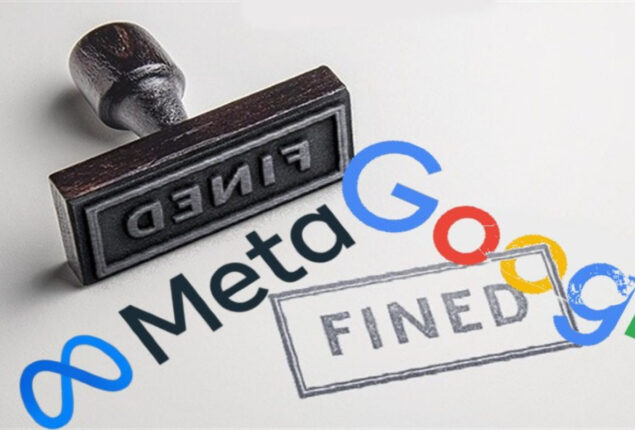Google and Meta Face Potential $230 Million Payment Under Canada’s Online News Act
Overview of Canada’s Online News Act
In Canada, the digital landscape is about to undergo a significant transformation. The Canadian government has introduced the Online News Act, a law that aims to compel tech giants like Google and Meta (formerly known as Facebook) to pay news outlets for content usage. This legislation, part of a global trend, could result in these companies collectively paying over CAD 230 million (approximately Rs. 1,410 crore) annually. Let’s delve into the details of this groundbreaking development.

The Need for Negotiations
Under the Online News Act, both Google and Meta are required to engage in voluntary negotiations with news publishers in Canada. These negotiations will determine the terms of compensation for using news content. The companies will be obligated to pay a portion of their global revenues to Canadian news publishers, based on a predefined calculation.
Concerns and Reactions
Both Google and Meta have expressed concerns about the practicality of this law for their businesses. As a response, Meta has already ceased sharing news content on its platforms in Canada. Google, on the other hand, is planning to block news from its search results in Canada even before the law takes effect.
Financial Implications
The draft regulations associated with the Online News Act propose that Google would contribute approximately CAD 172 million (around Rs. 1,050 crores) annually, while Meta (Facebook) would pay roughly CAD 60 million (approximately Rs. 360 crores) annually to Canadian news publishers. These figures are expected to fund the Canadian news industry and support its sustainability.
Mandatory Bargaining as a Last Resort
If Google and Meta fail to reach an agreement through voluntary negotiations and do not meet the payment threshold, mandatory bargaining will be enforced. This process will be overseen by the Canadian Radio-television and Telecommunications Commission (CRTC). It is expected that the framework for these negotiations will be established in the coming months, with mandatory bargaining commencing by early 2025.
Frequently Asked Questions (FAQs)
What is Canada’s Online News Act?
Canada’s Online News Act is a legislative initiative that requires tech giants like Google and Meta to compensate Canadian news publishers for the use of their content. It’s part of a global trend aimed at ensuring fair compensation for news outlets.
How will Google and Meta negotiate with news publishers?
Both Google and Meta are expected to engage in voluntary negotiations with Canadian news publishers. The terms of compensation will be determined through these negotiations, and the companies will be obliged to pay a portion of their global revenues to the publishers.
What happens if Google and Meta don’t reach voluntary agreements?
If voluntary negotiations do not result in agreements, mandatory bargaining overseen by the Canadian Radio-television and Telecommunications Commission (CRTC) will be enforced. This process is designed to ensure that fair compensation is provided to news publishers.
What are the financial implications of the Online News Act?
According to draft regulations, Google is projected to contribute approximately CAD 172 million annually, while Meta (Facebook) would pay around CAD 60 million annually to Canadian news publishers. These funds are intended to support the Canadian news industry.
When will the Online News Act take effect?
The Online News Act became law in June and is expected to come into effect in December. The Canadian government aims to establish the framework for mandatory bargaining between news organizations and tech giants by early 2025.




